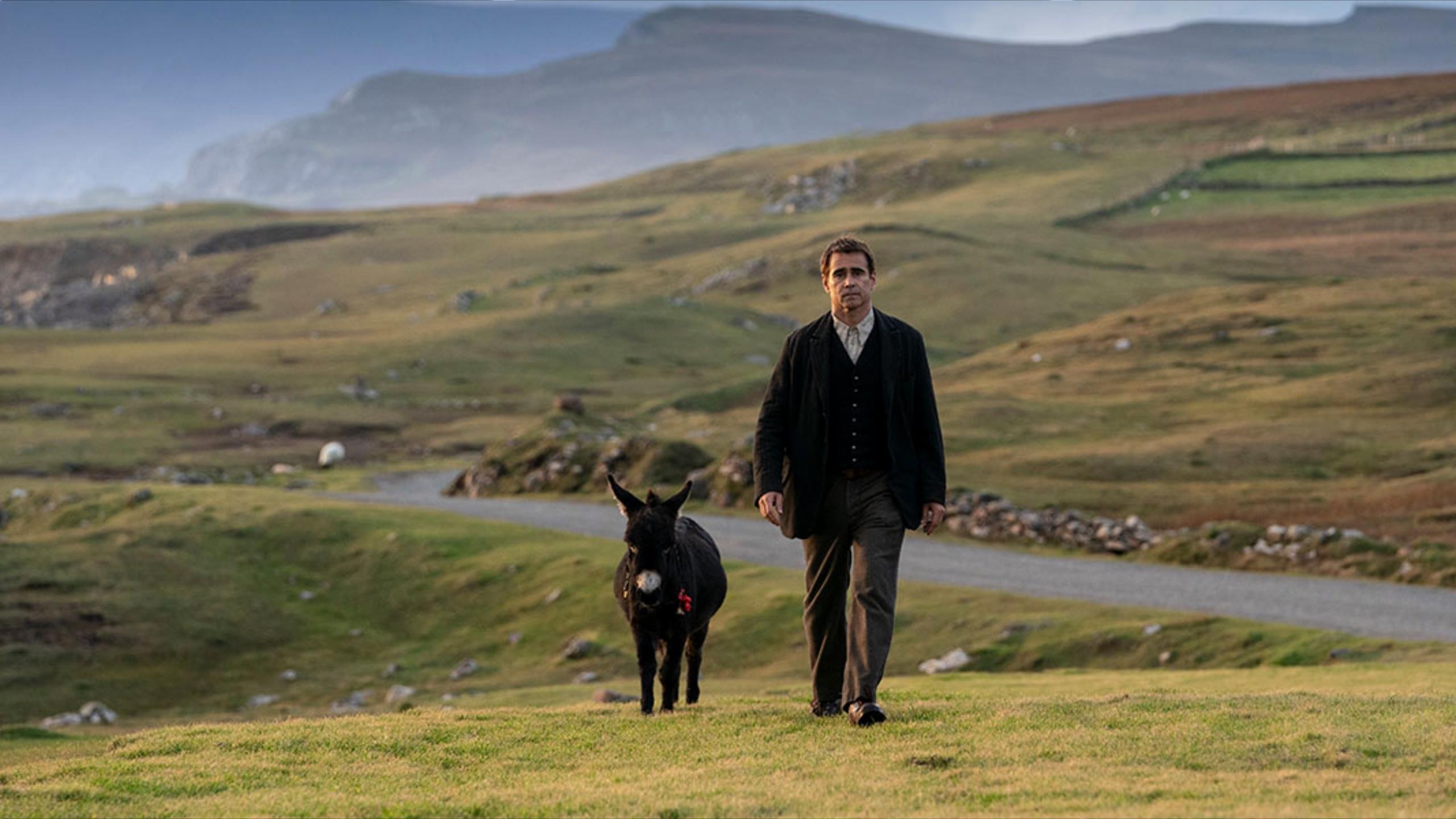By Rochelle Raveendran
Ambition dies as you age. Our retinas degenerate, priorities sharpen and we uphold our relationships to be what matters most in life. But on a small, static island off the Irish west coast in 1923, what does ambition look like in the first place?
For Pádraic (Colin Farrell) in the dark comedy The Banshees of Inisherin, written and directed by Martin McDonagh, it’s simply enough to wear his niceness as a badge of pride as he strolls over sloping green plains to enjoy a daily pint with his best friend, Colm (Brendan Gleeson).
The film, which screened at the Toronto International Film Festival last week, explores how Pádraic’s life is shaken on an otherwise unexceptional afternoon when Colm rejects him and terminates their friendship. “I just don’t like you no more,” he says bluntly.
In the film, death looms inescapably over the villagers. The film’s title refers to female spirits in Irish folklore—banshees—who wail to warn about impending deaths. Insherin’s own banshee, Mrs. McCormick (Sheila Flitton), freely doles out ominous predictions. As a reaction to life’s fragility, Colm’s cruel attitude isn’t unfathomable. Tedious relationships are now fickle to him compared to the immortal compositions of Mozart.
Though Colm is in his sixties, his extreme behaviour feels like early twenties pretension.
A new devotion to his fiddle means he can no longer tolerate banality
It’s the desire to produce something meaningful when you feel less relevant than ever before. University campuses like Toronto Metropolitan University’s are inversely bustling compared to 20th century Irish islands, but they make you feel equally unproductive.
Death anxiety peaks in your twenties, according to a paper in Death Studies. Colm doesn’t fear death, but he’s crushingly aware of it. Without any children, Colm throws himself into leaving a legacy by achieving cultural importance.
We’ve all been Pádraic before, hit with a senseless social media soft-block. Yet, it was the blocker who struck me hardest in this film. Colm has had an artistic awakening since the end of his friendship with Pádraic. A new devotion to his fiddle means he can no longer tolerate banality. “Niceness doesn’t last,” he says to Pádraic’s disdain, “but music does.”
Farrell plays Pádraic like a baffled puppy, brows contorting as he wonders what he did to offend Colm. News of the feud soon touches every corner of the close-knit community, where social niceties are cardinal and gossip cloaks itself as concern. Eventually, all the villagers, including Pádraic’s long-suffering sister, Siobhan (Kerry Condon), are badgering Colm about his decision.
The pressures of intellectualism set us up for hard falls
Pádraic’s indignance gradually devolves from witty, lived-in exchanges with Colm to irreversible fury.
When Pádraic refuses to accept his decision, Colm presents a sickening ultimatum: for every time Pádraic bothers him, he’ll cut off a finger from his fiddle-playing hand. The threat is less self-defeating than it appears.
The bizarrely violent saga also prompts Siobhan to reconsider her own suffocating life, spent living with her brother and chasing his beloved donkey, Jenny, out of their shared home.
In a telling scene, Siobhan corrects Colm for repeatedly referring to Mozart as a 17th century composer. Mozart died in 1791. The pressures of intellectualism set us up for hard falls; look no further than a TMU tutorial discussion for proof. For Colm, death—or at least maiming—would relieve him from his struggle for relevance against a ticking clock.
Gleeson gives a fascinating performance, distant but with affecting moments that suggest he feels forced to pursue this course. He grounds the film with a life set squarely between resolve and regret.
Born to Irish parents, McDonagh affectionately lingers on the fictional Inisherin’s peaceful rural landscapes. When accompanied by a bright choral score, it’s understandable why Pádraic is so content at the film’s opening. Animals are followed attentively, with moments of personality stressing their connection to their owners. Even as Pádraic grows lonelier, his bond with his donkey, Jenny, is unshakeable. Only interspecies friendships emerge unscathed as humans and animals alike hurtle towards the inevitable end.
Human consciousness is a contradictory burden in Banshees, freeing and trapping characters as they struggle in their quests for purpose.










Leave a Reply